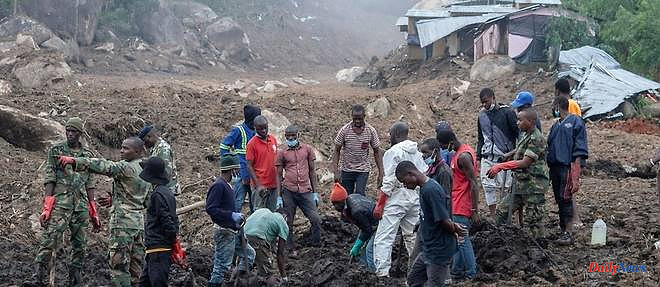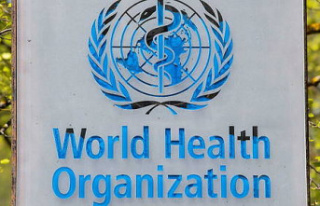Cyclone Freddy, which killed more than 400 people in southern Africa, affected more than half a million people in Malawi, one of the poorest countries now facing the risk of a humanitarian crisis, the United Nations warned on Friday.
Freddy "reduced to an area of low pressure and completely dissipated on March 15," said the local UN Office for the Coordination of Humanitarian Affairs (Ocha) in a situation update.
In six days, the equivalent of six months of rain fell on southern Malawi, the epicenter of the bad weather, causing floods and deadly landslides.
"More than 500,000 people have been affected since March 12," according to Ocha. More than 183,000 people out of a population of nearly 20 million are homeless.
Some 300 emergency shelters have been opened but the destruction is still limiting access for humanitarian teams and making aid difficult, the World Food Program (WFP) said in a statement.
"It's all gone, the potatoes, the corn," Loveness Makhala, a mother of four, told AFP. The harvest was to take place in a month. Picking up bits of sheet metal and bricks, the remains of her house, she admits that she does not know "how we are going to spend the year without a house and without food".
Cyclone Freddy, with exceptional longevity, caused 326 deaths in Malawi, a landlocked country. It also killed 86 people in Mozambique, according to a latest report on Friday, and 17 in Madagascar.
Formed in early February off Australia, the cyclone, which made an unprecedented crossing of more than 8,000 km from east to west in the Indian Ocean, is on the way to being classified as the longest on record.
It followed a looping path rarely recorded by meteorologists, hitting Madagascar and Mozambique for the first time at the end of February, then again in March these two countries and Malawi.
It hit the latter country the hardest, where more than 280,000 children urgently need humanitarian aid, UNICEF spokeswoman Fungma Fudong told AFP.
“There is a risk that the current cholera epidemic will worsen, with children being the most vulnerable to this crisis,” she added.
A state of disaster has been declared in the country, the police and the army deployed. President Lazarus Chakwera appealed for international assistance.
"The country will need significant support," said WFP director in Malawi, Paul Turnbull, promising mobilization as quickly as possible.
South Africa is lending a hand to the rescue teams, the United Kingdom must also send reinforcements. Neighboring Zambia has sent food and tents, according to a statement from the defense minister.
17/03/2023 18:01:21 - Blantyre (Malawi) (AFP) - © 2023 AFP












